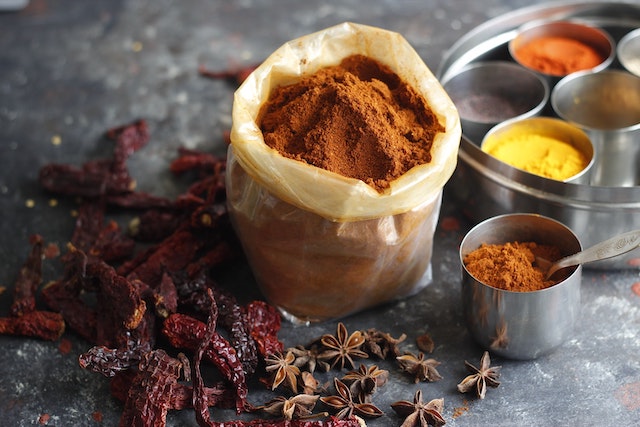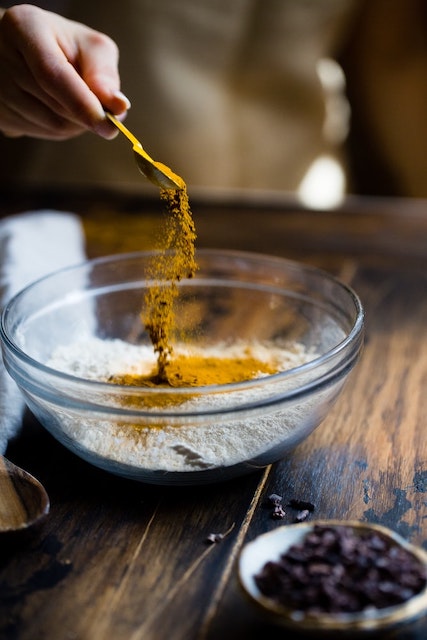Alchemy Lessons: Rethinking Pakistani Traditions

As I pour the milk onto my gold amalgam, swirls of honey, saffron, and turmeric create a marble effect, Triana yellow. Equal drops of rose water and olive oil, and the holy concoction is ready to be smeared onto me.
Lakshmi, my Hindu maid, is squat crawling effortlessly to mop the tiled floor.
“What are you doing, guriyah (doll)?” She asks.
“Turmeric mask,” I smile at her.
Her face turns sombre as she pretends to overlook, fixing her sari over her head.
I wish I could have just mumbled some incomprehensible generic terminology in Latin to glorify this home-made scrub. I knew what Lakhsmi was thinking. The ancient recipe is associated with one of the South-Asian pre-wedding ceremonies. The bride’s body is massaged with this vibrant turmeric paste to bring fertility and prosperity to her new life and make her body glow.
But why should I be affected by Lakhshmi’s disapproving look at me practising this nuptial ritual now that my marriage has broken? I have been using it since an early age, not to appease the goddess of fertility. But to exfoliate the dead layer of the epidermis through organic ingredients.
Recipe:
4 tbsp milk to fortify my resolve to let go
2 tbsp honey to remember that sweetness is only attained after the bee stings
1 tbsp cinnamon to balance the sweet and spiced flavours of life
1 tbsp turmeric to hope for the arrival of the sun tomorrow
Pinch of saffron to be patient while plucking the crimson stigmas of the crocus
2 tbsp olive oil to kindle the divine lamp in pitch darkness for the “light upon light”. (Quran, Verse of Light-24:35)
3 tbsp sandalwood to embrace the oriental spirit
2 tbsp rose water to dilute the potion of overwhelming memories
Method:
As I gently massage my skin with circular motions, every dead cell permeated with the aching memory sheds through this sweet-smelling paste. It is the alchemy for healing from the past instead of celebrating the forthcoming.
I walk out of the room looking like a yellowed ghost and deliberately stand in front of Lakshmi, who is still creating wet zig-zagged patterns on the floor. Petrified, she stares at me for minutes.
How could I, the ill-omened, have the audacity to make this sacred wedding ritual a mundane matter of exfoliation?
“Why don’t you use fayyce waaash?”
“Sure,” I instantly dismissed her; my newly acquired attribute.
In defiance of the omens linked to the rituals, I construe this ambre scrub as a honeyed reminder to cleanse myself of the lifeless relations and forge new meaning: “The snake which cannot cast its skin has to die. As well the minds which are prevented from changing their opinions; they cease to be mind.” (Friedrich Nietzsche)
Although I may be unable to change Lakhshmi’s perspective, I do not need to explain my intentions for following old traditions. In the perpetual struggle of changing opinions with time, I will continue to follow this ancient ritual with my own new-found meaning.

Photo credits for Alchemy Lessons: Rethinking Pakistani Traditions by Unsplash.









Wow, powerful!
Not only is this piece eloquent and well-written, it also has very creative edge to it.
Be brave as a Lion,
We remember Ali, but forget his symbol of courage.
Shatter all the norms.
Keep on writing.